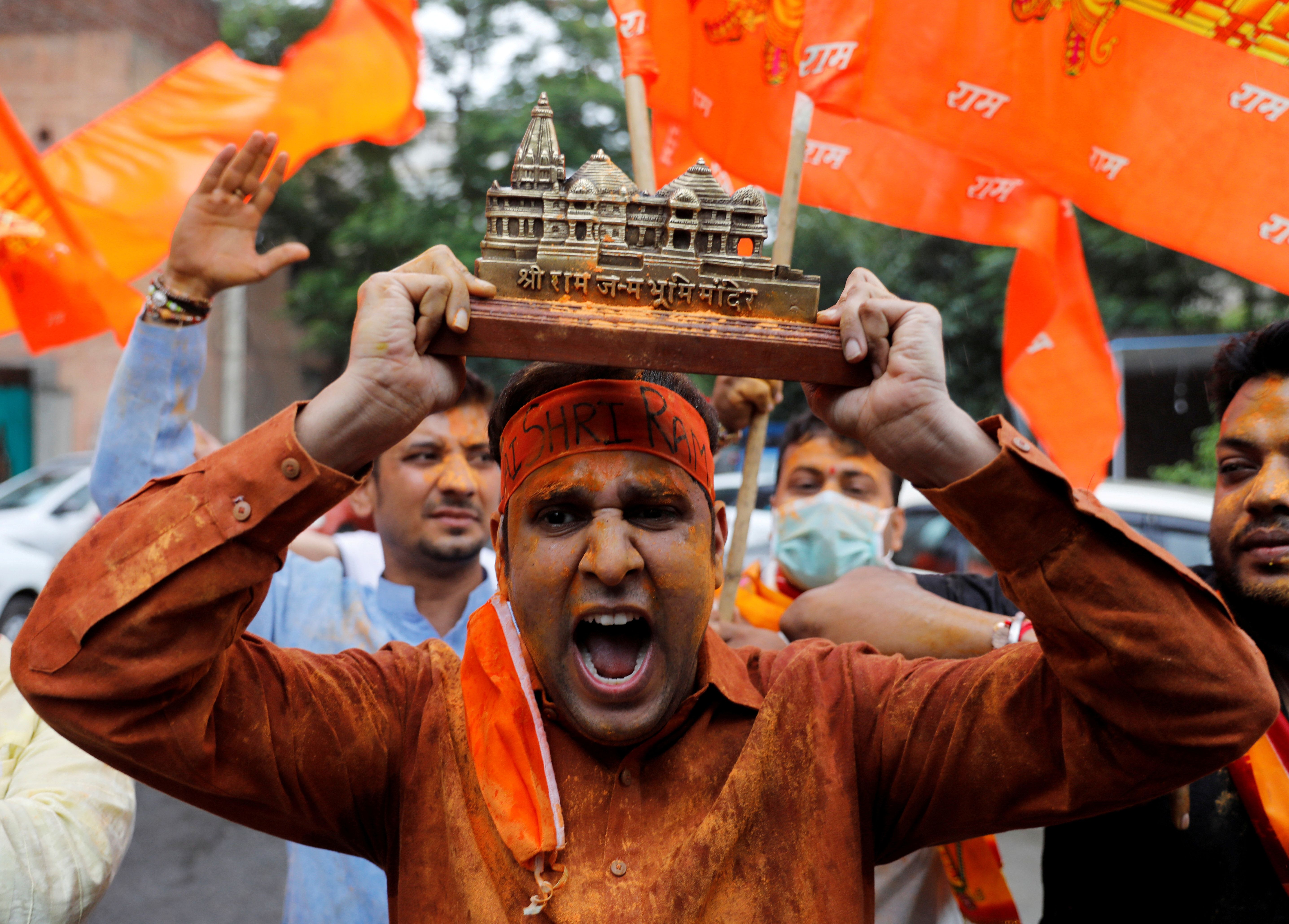What We're Watching: Modi plays to his base, US visit to Taiwan irks China, Colombia arrests ex-leader
Modi riles up his base: Indian Prime Minister Narendra Modi on Wednesday set the first stone for a new Hindu temple to be built over the remains of a Mughal-era mosque in Uttar Pradesh state. The site, in the town of Ayodhya, has been disputed for decades by Hindus and Muslims, but the Supreme Court last November ruled, based on archeological findings, that construction of the temple could begin. The ruling dismayed many of India's 180 million Muslims, who worry that Modi — who was accompanied at the ceremony by Mohan Bhagwat, an ultranationalist Hindu activist whose followers helped to destroy the old mosque amid a wave of sectarian violence in 1992 — wants to replace India's secular foundations with his more explicitly Hindu vision of the country's identity. Although months ago Modi saw sizable protests over a controversial new citizenship law that discriminated against Muslims, he has so far proven to be extremely resilient and remains widely popular in India.
A provocative visit to Taiwan: US Health and Human Services Secretary Alex Azar will soon become the most senior US official to set foot in Taiwan since Washington established democratic relations with the People's Republic of China in 1979. The official purpose of his visit is to deepen cooperation with Taiwan on fighting the coronavirus pandemic, but it is certain to stoke further tensions between the US and China, which considers Taiwan part of its own territory. (For the record, so does the US, officially, but Washington has maintained a preferential security and diplomatic relationship with self-governing Taiwan for decades.) The timing of Azar's visit may have an electoral motivation: both Trump and Biden want to exploit growing bipartisan suspicions of China, and as the election approaches it may play well for Trump to have his man in Taiwan rehashing Washington's accusations that Beijing deliberately hid information about the initial coronavirus outbreak. We are watching to see how Beijing responds to the slight, as Taiwan is still the most sensitive issue in China-US relations.
Uribe's August staycation: Colombia's Supreme Court has placed powerful former president Alvaro Uribe under house arrest as part of a witness-tampering and fraud investigation. Uribe, a conservative, was president from 2002-2010, during which time he led a military crackdown against the country's FARC rebels that weakened them to the point that a peace deal was possible under his successor. But he has long faced accusations of turning a blind eye to human rights violations, and of having ties to right-wing paramilitary groups. The Court is investigating whether Uribe's allies sought to squelch an investigation into those relationships several years ago. Uribe remains one of the most powerful and polarizing figures in Colombia — his backing helped elevate current president Ivan Duque win a contentious 2018 election. Uribe's house arrest has sent shockwaves through a deeply divided country that is unaccustomed to seeing public officials of his stature held to account. If he is brought to trial and convicted — still by no means a certain outcome — he could face up to eight years in prison.
